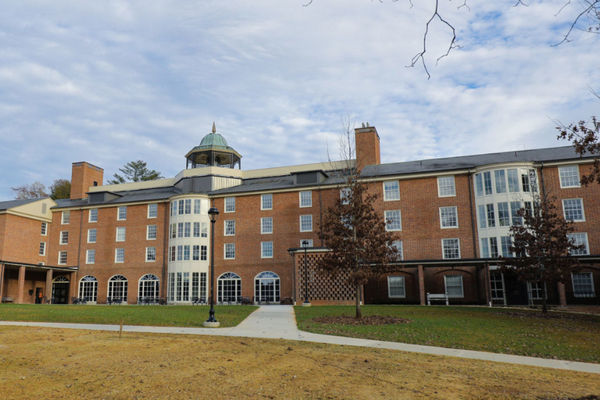With a few exceptions, all Furman students are expected to live on campus and are required to choose one of Furman’s predetermined meal plans. Yet the notion behind the word “choice” is fictitious; freshman and sophomore students are required to select the most expensive, unlimited meal plan because, despite the promise of residence hall community kitchens on Furman’s website, most dorm kitchens are equipped with only the microwave and fridge already standardized in student rooms.
This situation seems unfair; first and second year students could save significant amounts of money if they had the option to supplement a smaller meal plan with dorm-kitchen cuisine. While many Furman students are not struggling financially, there are some who must be more fiscally aware of their college spending. Forcing the younger students to subscribe to the $3,025 meal plan puts an extra burden on the backs of freshmen and sophomores who may be struggling financially. The two cheaper options, coming in at $2,363 for 160 meals and $1,800 for 110 meals, could help alleviate Furman’s hefty price tag if it was made available to the underclassmen. The $1,225 price variation between the unlimited meal plan and the cheapest 110 meal plan could be the difference between a student taking out a loan or not for that semester. Yet to make this financial savings possible, students would need to have access to proper cooking facilities that include at least a stove or oven.
The lack of proper kitchens also hurts students with dietary restrictions. There are a variety of dining options that cater to those with certain sensitivities, but students with allergies, religious obligations and other limitations have reduced choices when it comes time to eat in comparison to those who do not have such restrictions. This limited choice will likely become even more apparent with the new changes in dining procedures due to COVID-19. Proper community kitchens could help alleviate this problem by allowing students to make foods that fit their individual needs and ensure that their food is satisfactory.
The controversy surrounding COVID-19 is another factor when considering these kitchens. Furman has already stated that they will work to minimize students’ interaction with the greater Greenville community in order to guard against the virus, but what about minimizing physical interaction on campus? While preventative measures are being implemented, there will still be a large number of students going to on-campus dining sites at the same time. If the university installed proper kitchens in the dorm halls, they could further reduce the need for large group interaction. Instead of going to the already-crowded Dining Hall, students could utilize the kitchen and thereby interact only with the people that live in their hall, rather than the much larger student presence they would face otherwise.
These kitchens would, of course, require certain safety measures for both COVID-related reasons and otherwise. In conjunction with the custodial staff, RAs could ensure that the kitchens have the proper cleaning products that students would need to use after they are done cooking. In addition, fire prevention equipment would need to be readily available in the event of a cooking mishap. However, by implementing these changes, Furman could provide the tools to allow students to develop skills that would help them in life after college.
Furman needs updated community kitchens now more than ever before. Not only to lessen the financial strain felt by younger students, but also to prioritize the safety and well-being of all those on campus.
